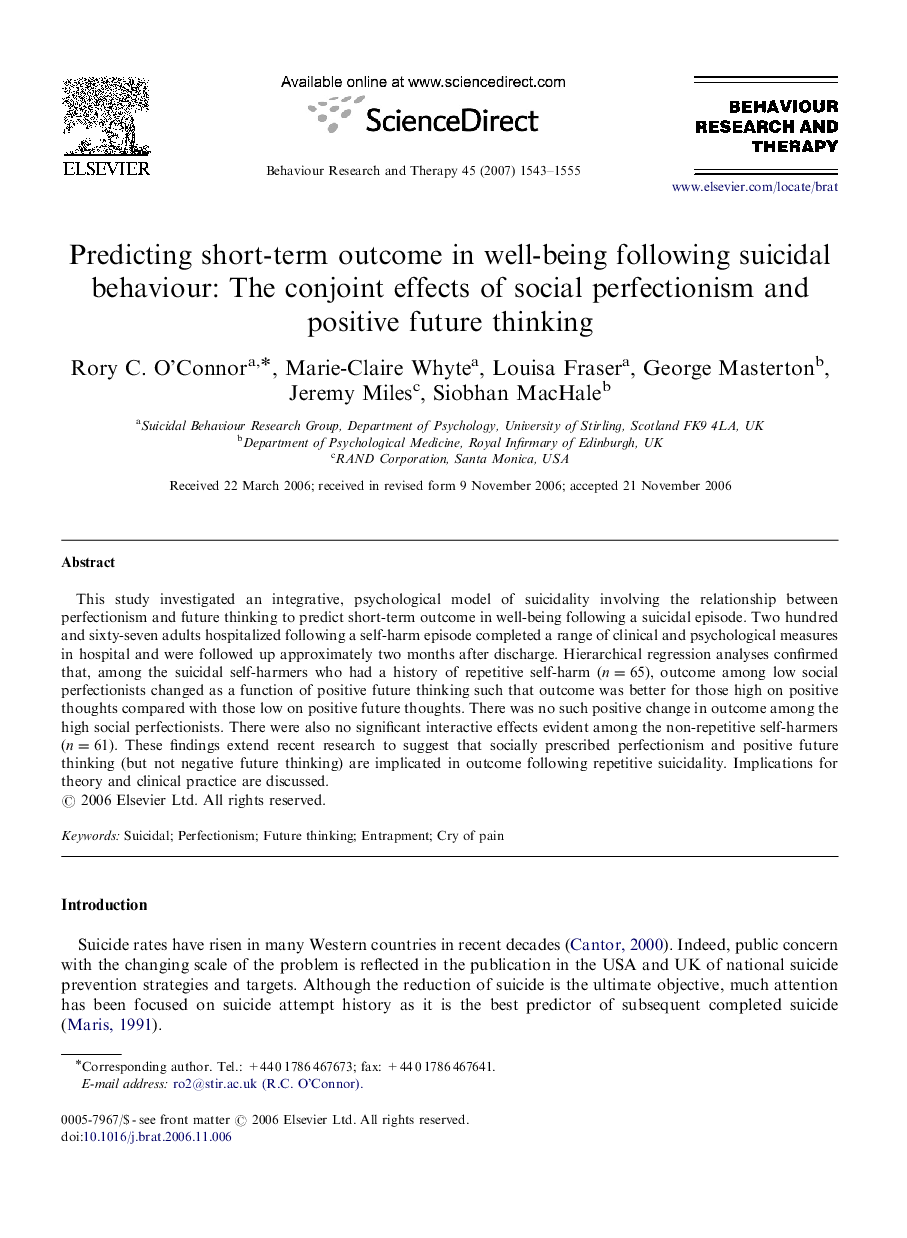| Article ID | Journal | Published Year | Pages | File Type |
|---|---|---|---|---|
| 902592 | Behaviour Research and Therapy | 2007 | 13 Pages |
This study investigated an integrative, psychological model of suicidality involving the relationship between perfectionism and future thinking to predict short-term outcome in well-being following a suicidal episode. Two hundred and sixty-seven adults hospitalized following a self-harm episode completed a range of clinical and psychological measures in hospital and were followed up approximately two months after discharge. Hierarchical regression analyses confirmed that, among the suicidal self-harmers who had a history of repetitive self-harm (n=65), outcome among low social perfectionists changed as a function of positive future thinking such that outcome was better for those high on positive thoughts compared with those low on positive future thoughts. There was no such positive change in outcome among the high social perfectionists. There were also no significant interactive effects evident among the non-repetitive self-harmers (n=61). These findings extend recent research to suggest that socially prescribed perfectionism and positive future thinking (but not negative future thinking) are implicated in outcome following repetitive suicidality. Implications for theory and clinical practice are discussed.
